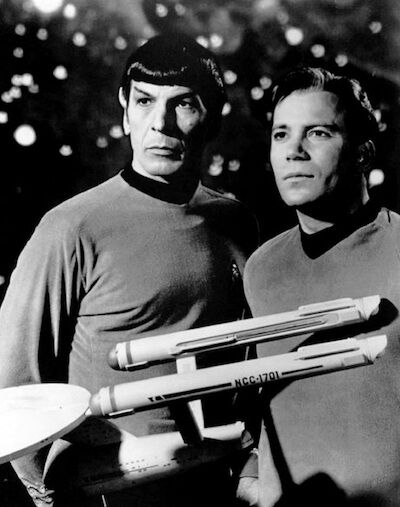 Spock never made Captain. It’s true! When Spock retired from Starfleet in 2269, he had never been promoted to Captain. Yes, it did finally happen, but years later — in 2277 — and six years after his reactivation during the V’Ger crisis. James T. Kirk, on the other hand, was promoted to Captain within 10 years of his graduation from Starfleet Academy.
Spock never made Captain. It’s true! When Spock retired from Starfleet in 2269, he had never been promoted to Captain. Yes, it did finally happen, but years later — in 2277 — and six years after his reactivation during the V’Ger crisis. James T. Kirk, on the other hand, was promoted to Captain within 10 years of his graduation from Starfleet Academy.
Why? Spock was brilliant, dedicated, and insightful. He was a resourceful problem-solver and a tireless, loyal worker on behalf of his organization’s strategic goals.
So was Stephen in IT. Stephen was smart, talented, and loved what he did. He advanced in a succession of increasingly responsible IT roles over a nine year period. The company’s CEO wanted to promote Stephen to a high-level executive position, which would make him an important member of the senior leadership team.
There was, however, one “problem.” One thing stood between a fantastic long-term employee and a significant promotion. In Stephen’s case, much like Spock, his communication skills were the issue. In a prominent leadership role, the ability to communicate effectively would be critical.
We tend to promote based on past performance — how good someone has been in their last role. But NEW skills are essential for managing and leadership that are different from functionally-specific expertise.
For example, leading people requires a higher level of emotional intelligence — a strong characteristic and important asset for Captain Kirk.
Executive coaching is well-suited to developing these skills, which go beyond technical book knowledge. It is an effective tool for developing high-level capabilities and advancing careers. Executive coaching is a catalyst, taking a person on a journey of self-discovery to break through their personal glass ceilings.
Coaching is not about strengthening the technical skills that Stephen is already great at, it’s enhancing the people skills and communication skills that he may never have been asked to be good at until now. In fact, Stephen has never before needed to be a good communicator to be successful in his job.
One of the key advantages of executive coaching is that it can be effectively focused to address specific areas of need, such as:
- Developing communication skills
- Enhancing an individual strength
- Advancing strategic thinking skills
- Evolving leadership style
- Growing professional presence
The “one problem” scenario happens more often than you may imagine. For Stephen it was communication. For another person it might be their professional presence. For another, it might be muddy strategic thinking skills.
Unlike Spock, instead of passing on a talented employee because of a shortcoming, Stephen’s superior’s were wise enough to leverage the power of executive coaching to address the issue. Connecting Stephen to executive coaching resources, his CEO was able to help Stephen overcome the hurdle and build his communication skill set. For more about communication skills, read Arden Coaching’s article, “4 Communication Skills Your Business Leaders Must Possess.”
Stephen got the promotion. Today, he is not only a successful senior executive, Stephen has the potential to become a CEO. Stephen’s boss leveraged executive coaching brilliantly to get the most out of his employee — a distinct competitive advantage for the company as well.
Boldly go, and dare to get the very most from talented, aspiring employees like Stephen!
To learn more about executive coaching, contact us at admin@ardencoaching.com or 646.844.2233.
Just for fun, visit http://www.startrek.com/database_article/spock for the official biography of Dr. Spock, and http://www.startrek.com/database_article/james-t-kirk for James T. Kirk.
